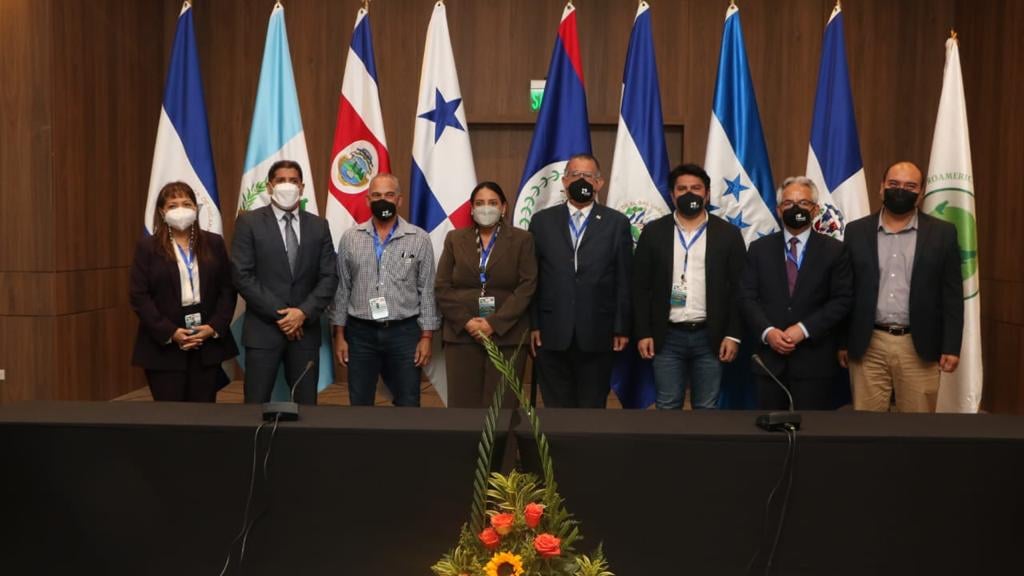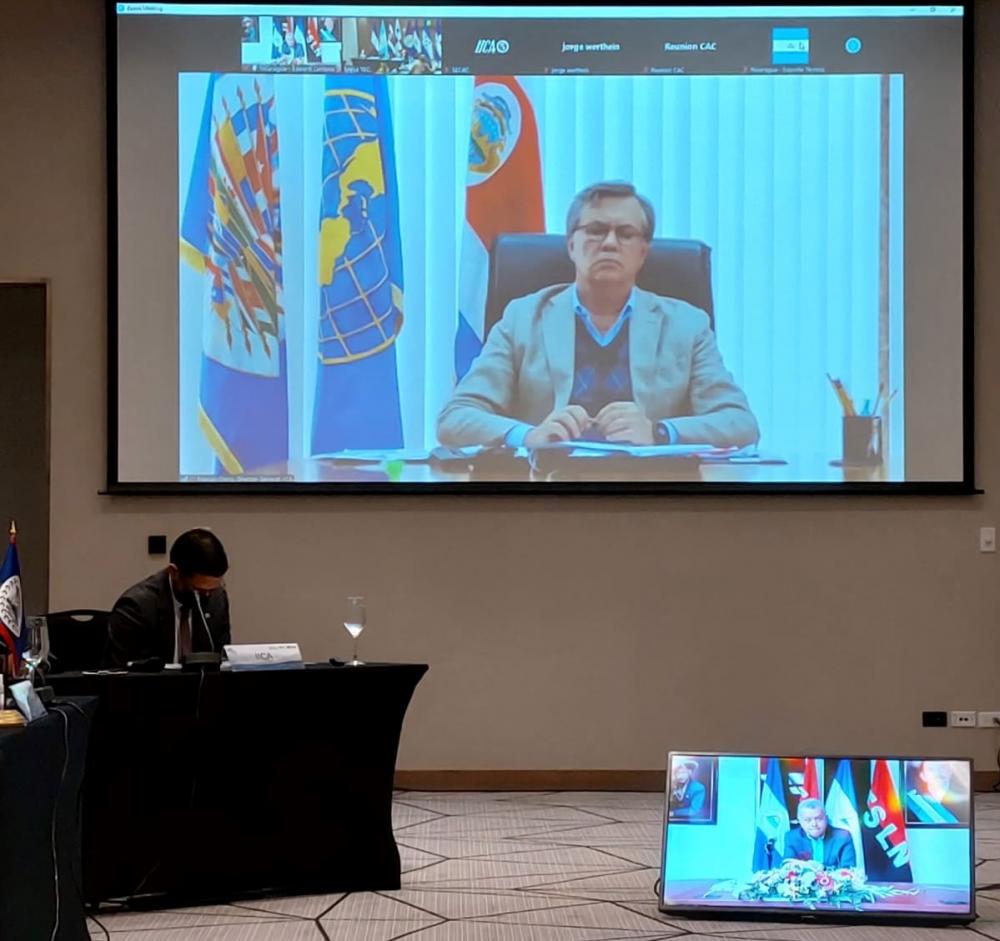Within the framework of a regular meeting of the Central American Agricultural Council (CAC), senior officials gathered to review the status of agricultural trade in the region, among other issues.

San Jose, 21 February 2022 (IICA). The ministers of Agriculture of Central America highlighted the role of the Inter-American Institute for Cooperation on Agriculture (IICA) in providing technical assistance and contributing to the development of State policies for the sector, during a meeting in which the Director General of the Institute, Manuel Otero, emphasized the importance of expanding regional trade, science and innovation, and of fostering greater synergy between productivity and the environment.
The ministers and secretaries of Agriculture of Belize, Costa Rica, El Salvador, Guatemala, Honduras, Nicaragua, Panama and the Dominican Republic gathered within the framework of a regular meeting of the Central American Agricultural Council (CAC), a body of the Central American Integration System (SICA).
With Augusto Valderrama, Minister of Agricultural Development of Panama and pro tempore President of CAC, serving as host, the senior Central American officials reviewed the status of agricultural trade in the region, a topic on which the Secretary General of the Secretariat for Central American Economic Integration (SIECA), Francisco Lima, delivered a presentation.
With respect to this topic, Otero underscored “the importance of trade and regional integration” as well as “the success of joint efforts between IICA, FAO, SIECA and the Executive Secretariat of CAC to hold the third and fourth virtual business roundtables for agrifood chains”.
The roundtables, which attracted a large number of participants and hundreds of small-scale rural enterprises from dozens of countries, generated expected business worth more than USD 50 million. This, in turn, consolidated a regional public good for SMEs, cooperatives and family farming organizations, thereby generating opportunities to access new markets.
“We are now ready for the fifth and sixth roundtables, in which we hope to foster, once again, exchanges between thousands of companies, as well as trade linkages and networks between the region’s agrifood chains. We will also aim to consolidate and diversify their export markets within the context of economic recovery”, explained Otero.
After greeting the ministers and welcoming the new Secretary of Agriculture and Livestock of Honduras, Laura Suazo, to the group, the Director General of IICA thanked Minister Valderrama for providing the Institute with the opportunity to participate “in the development of State policies for Panamanian agriculture”, as well as in the discussion of regulatory frameworks and a five-year plan that seeks to lay new foundations for the country’s agricultural development.

“IICA attaches a great deal of importance to the issues of science and innovation because we have to take advantage of the new frontier of knowledge. Biotechnology and biosafety are crucial to the transformation of our agrifood systems”, remarked Otero prior to introducing IICA technical specialist Pedro Rocha, who delivered a presentation on the progress the region has achieved in these areas.
In turn, the Minister of Agriculture of El Salvador, David Martínez, highlighted “the extremely positive dialogue with the Director General and the new IICA Representative in El Salvador, Erick Quirós”, as well as “the importance of recognizing the support that IICA provides in matters related to agrifood systems (…), which enables us to access more markets, increase production, and achieve food security and sovereignty as a region. Our region has tremendous potential to feed the world; we must take full advantage of that”.
The Minister of Agriculture and Livestock of Costa Rica, Renato Alvarado, thanked IICA for its support in matters related to sectoral insurance at the regional level. “This has involved significant efforts, and, as I stand here before all of the ministers, I would like to express our hope that we will continue to count on IICA’s support to further develop the CAC platform (…), to provide small-scale producers with access to funding opportunities. We are eternally grateful for the support we have received from IICA, especially in matters related to family farming”.
In turn, Minister Valderrama underscored the importance of IICA’s contribution to the agricultural development of the countries of the region and wished the Director General the greatest success in his second term at the helm of the organization, which began last month.
In his presentation, which focused on biotechnology, Rocha underscored the ways in which IICA can contribute to regulatory frameworks and how the sector can provide countries and small and medium-scale producers with what he described as “multiple tools” to obtain benefits in terms of health, productivity, quality and sustainability.
“The development of vaccines, animal health management, food improvement, control of mosquito-borne diseases… We view biotechnology as a toolbox and it is up to the countries to define which tools to utilize in the agricultural and livestock sector”, indicated Rocha.
More information:
Institutional Communication Division.
comunicacion.institucional@iica.int











